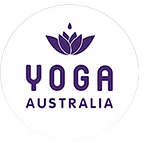Meditation and Stress: The Research
By Rebel Tucker
Many of us know the benefits of regular meditation. We literally feel the difference it makes in our lives! We feel better. There is some interesting research that shows meditation can improve various aspects of our health such as easing pain and reducing anxiety.
Meditation has been around in different forms for thousands of years. Although we use the word ‘meditation’ to describe what we do, more accurately meditation is the result of what we do.
Essentially, it is a form of mental exercise. A practice of pondering. Various styles of meditation have been mentioned in different traditions and in different schools of philosophy, such as in Vedic schools of India, and in Buddhist and Taoist traditions. The styles and techniques are many and this means we can try out a few different styles and find one that suits us.
We can counter the effects of busy modern life by taking some time out to practice a chosen technique. Meditation practices are often used for stress management and can also improve our ability to remain attentive (1).
Ongoing stress in people who have health concerns and are older can have particularly damaging effects. It can affect mood and behaviour and impact our body. Finding ways to reduce the impact of stress and improve our ability to deal with stressors in life is becoming increasingly important to many people. Stress is a global problem (2):
· 91% of Australians feel stressed about one or more important parts of their life
· 75% of Americans experienced moderate to high stress in the past month
· 450,000 workers in Britain believe their stress was making them ill
· 86% of Chinese workers reported stress
We train physically to get the results in our body…and…we can also do mental training practices to benefit our mental and emotional states.
Patanjali’s 8 Limbs of Yoga teach us the important steps of:
· Pratyahara — withdrawing our senses
· Dharana — focusing our attention
These lead us to dhyana — meditative absorption — or the state of meditation. This can be seen as a gift born of practicing pratyahara and dharana.
When we practice regulating our attention by focusing on one chosen thing, we begin to induce the physiological processes of the parasympathetic nervous system. This is referred to as The Relaxation Response. A term coined by Herbert Benson in 1975.
When we practice withdrawing our senses and focusing our attention regularly, we might begin to feel a reduction in the effects of stress and negative emotions (3).
Physiologically, we benefit in some amazing and interesting ways: vagal tone improves, happy hormones increase, our prefrontal cortex in our brain activates, which helps organise thoughts and actions to align with our goals, our physical and emotional reactions to stress improve (4).
Meditation practices done regularly can:
· Reduce pain (5)
· Relieve fear (6)
· Maintain telomere length which may slow aging (7)
· Reduce blood pressure (8)
Whether you practice Mantra, Open Awareness, Loving Kindness, Vipassana, Guided Meditations, Yoga Nidra or one of the other many techniques…research shows…you will be doing something that benefits your physical and mental being.
The proof though is in the practice…so give it a go.
Reach out to a qualified Yoga Teacher or Yoga Therapist. They can help you choose a technique to suit you.
Find one in your local area here: https://www.yogaaustralia.org.au/search-registered-teachers/
(1) Sumantry, D., Stewart, K.E. Meditation, Mindfulness, and Attention: a Meta-analysis. Mindfulness (2021). https://doi.org/10.1007/s12671-021-01593-w
(2) https://www.therecoveryvillage.com/mental-health/stress/related/stress-statistics/
(3) Luberto, C.M., Shinday, N., Song, R. et al. A Systematic Review and Meta-analysis of the Effects of Meditation on Empathy, Compassion, and Prosocial Behaviors. Mindfulness 9, 708–724 (2018). https://doi.org/10.1007/s12671-017-0841-8
(4) Jennifer A. Galvin, Herbert Benson, Gloria R. Deckro, Gregory L. Fricchione, Jeffery A. Dusek. The relaxation response: Reducing stress and improving cognition in healthy aging adults. Complementary Therapies in Clinical Practice, Volume 12, Issue 3, 2006, Pages 186–191, ISSN 1744–3881. https://doi.org/10.1016/j.ctcp.2006.02.004.
(5) Lara Hilton, MPH, Susanne Hempel, PhD, Brett A. Ewing, MS, Eric Apaydin, MPP, Lea Xenakis, MPA, Sydne Newberry, PhD, Ben Colaiaco, MA, Alicia Ruelaz Maher, MD, Roberta M. Shanman, MS, Melony E. Sorbero, PhD, Margaret A. Maglione, MPP, Mindfulness Meditation for Chronic Pain: Systematic Review and Meta-analysis, Annals of Behavioral Medicine, Volume 51, Issue 2, April 2017, Pages 199–213, https://doi.org/10.1007/s12160-016-9844-2
(6) Strengthened Hippocampal Circuits Underlie Enhanced Retrieval of Extinguished Fear Memories Following Mindfulness Training. Sevinc, Gunes et al. Biological Psychiatry, Volume 86, Issue 9, 693–702. https://doi.org/10.1016/j.biopsych.2019.05.017
(7) Alda, M., Puebla-Guedea, M., Rodero, B. et al. Zen meditation, Length of Telomeres, and the Role of Experiential Avoidance and Compassion. Mindfulness 7, 651–659 (2016). https://doi.org/10.1007/s12671-016-0500-5
(8) Manoj K. Bhasin, John W. Denninger, Jeff C. Huffman, Marie G. Joseph, Halsey Niles, Emma Chad-Friedman, Roberta Goldman, Beverly Buczynski-Kelley, Barbara A. Mahoney, Gregory L. Fricchione, Jeffery A. Dusek, Herbert Benson, Randall M. Zusman, and Towia A. Libermann.The Journal of Alternative and Complementary Medicine.May 2018.486–504.http://doi.org/10.1089/acm.2017.0053
